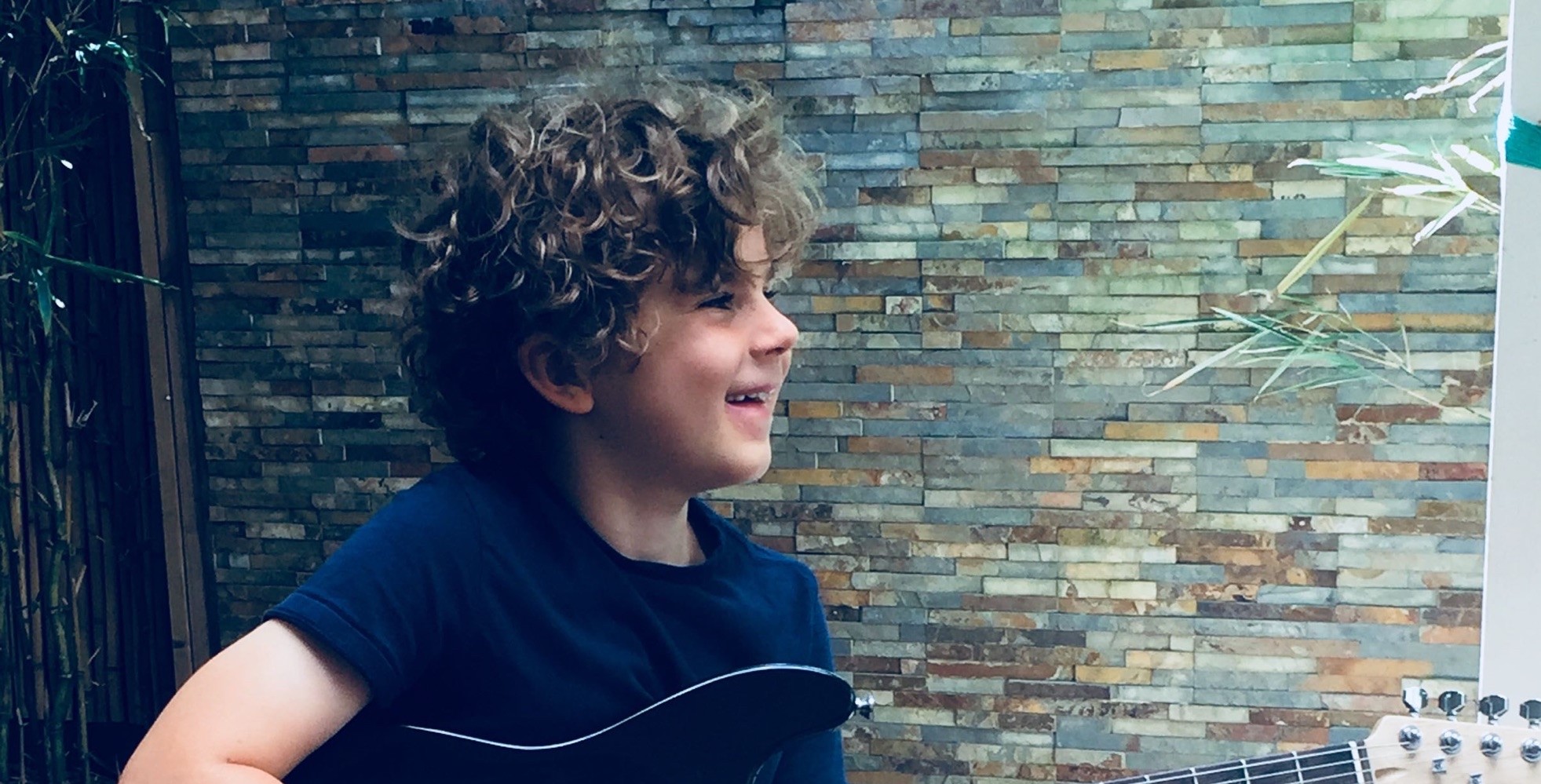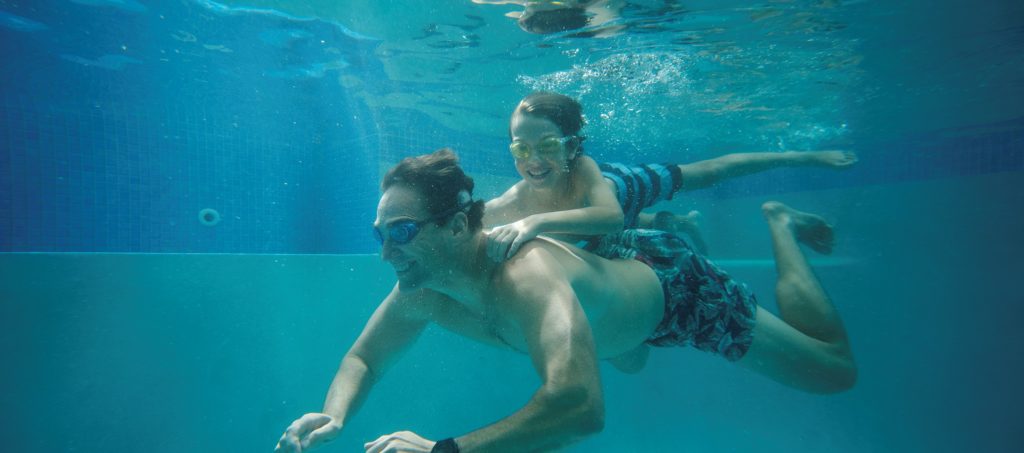While hanging out on a South Pacific family holiday, Felix had an encounter with a musical instrument that changed his life.
‘It was a simple ukulele on a holiday in Fiji that captured Felix’s attention and inspired him to start guitar,’ says Felix’s mum, Jo. ‘His Dad would pick up the uke and play it to everyone on that trip. He had fun with it and Felix saw the fun to be had if you just learnt a few chords.’
That was three years ago, and it started a passion for music for Felix, who is now 10. He plays electric and acoustic guitar, writes his own songs and loves to regularly jam with his Dad.
But music may be playing an even bigger role in Felix’s life.
Research suggests it is possible for children with cochlear implants to benefit from musical activities in respect to speech perception and hearing¹.
The research identifies a wide variety of activities as being beneficial, including singing, dancing and playing with musical instruments.
Jo has no doubt that musical activities have helped Felix, who has bilateral Cochlear™ Nucleus® 7 Sound Processors, develop his language skills.
‘I think it has given him the ability to tune in and focus his hearing in a fun and engaging way. He has learnt to focus to hear a melody within a piece of music, or to hear lyrics in a song,’ she says.
According to research, musical activities improve the ability to enjoy pitch and rhythm, which are important early steps to understand and develop spoken language¹.
The authors of a review article published in the internationally recognised journal, Hearing Research, felt the results were so powerful, they concluded that ‘the current evidence seems enough to urge speech therapists, music therapists, music teachers, parents, and children and adolescents with hearing impairments and/or cochlear implants to start using music for enhancing speech and language skills.’¹
Here are some tips from the researchers to help you get started:
1. Begin as soon as you can
Children can benefit from musical activities even before implantation of their cochlear implant – the earlier the better, as the brain is most adaptable before four years of age.
‘We always had music around. Even before Felix’s implants and knowing he couldn’t hear, we would put him near musical vibrations,’ says Jo. ‘I would sing lullabies with him on my chest or lay him on the piano while we played.’
2. Dance and use body movements in the rhythm of the music and with the pitch
The research shows that dancing to music helps children with cochlear implants to learn lyrics and improve perception of speech. Let your body movements reflect the style of the music (fast or slow, happy or sad) to help your child learn the rhythm and beat of music. Let your hand or body movements reflect the pitch movements, to improve pitch perception. This is important for language learning.
3. Use your own singing as your main instrument
The Hearing Research authors say this can help improve speech perception and language skills.
4. Use several musical instruments
Playing an instrument may be more effective than listening only, the Hearing Research review suggests, so let your child try different musical instruments.
‘We always had a box of percussion toys when Felix was tiny. We bought small violins that we weren’t too precious about, and recorders, triangles and xylophones,’ says Jo.
5. Sing and play the same songs repeatedly
Repetition helps us to remember sounds and what words should sound like. Over the course of the repetitions, the brain makes the sound more and more precise. Singing the same songs will help your child grasp the tune and meaning of the words.
6. Take turns
Use songs that include turn-taking. Give your child the opportunity to continue the song when you stop singing or sing a short section of a song and have your child repeat it. This allows your child to listen, to produce speech sounds, and to compare your speech with their own.
7. Get the family involved
Involving everyone encourages music around your home, with plenty of repetition and opportunities to listen to and make music.
Jo says this can also be bonding for Felix and his dad. ‘This is a beautiful way to connect. They practise together most days. Dad can play the guitar with him and he also takes on the singing role, showing Felix that it’s ok to be out of your comfort zone.’
8. Encourage life with music
‘With speech therapy being a 24/7 thing with a hearing-impaired child, it can be difficult to incorporate music as you don’t want background music making it difficult for your child to focus on your all-important voice.
‘We made a specific point of listening to music while incorporating it into playing. We danced together, or bashed pans together, or had music playing while relaxing on the floor,’ says Jo.
She suggests starting simply: ‘We used baby CDs that just had one instrument playing a simple melody of something lyrical. We tried nursery rhymes set to different music, then we moved to ABBA and the Beatles and then some ‘80s rock.’
___
Reference:
1. Torppa R, Huotilainen M. Why and how music can be used to rehabilitate and develop speech and language skills in hearing-impaired children. Hearing Research 2019; 380: 108-122.



